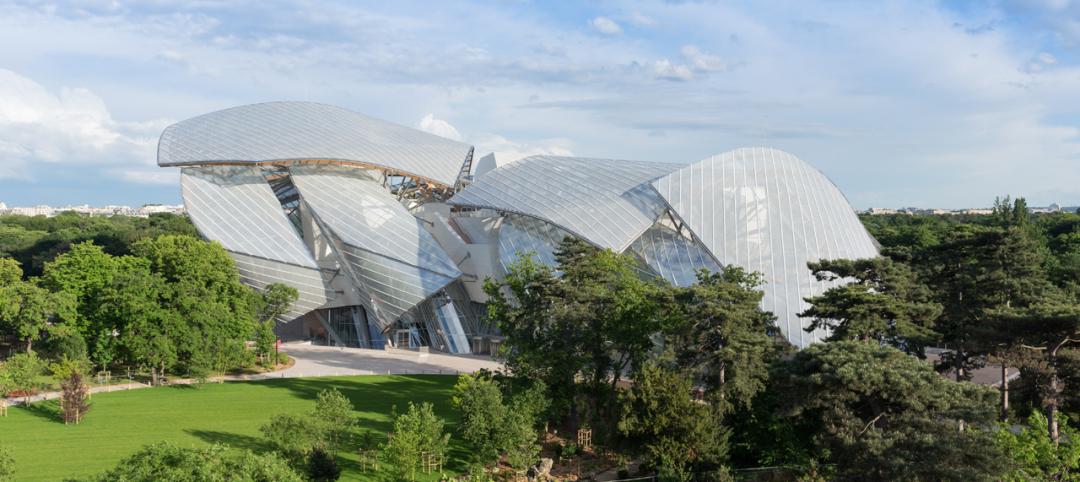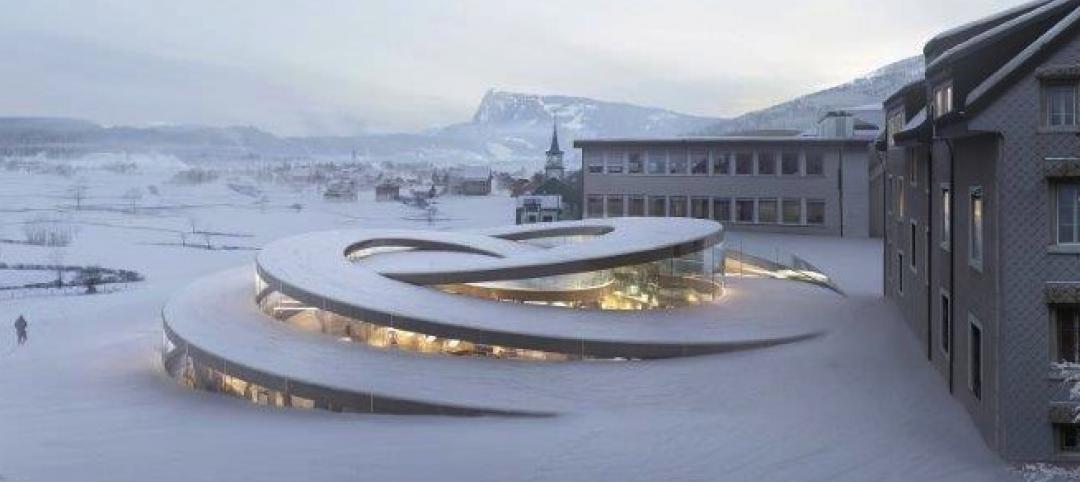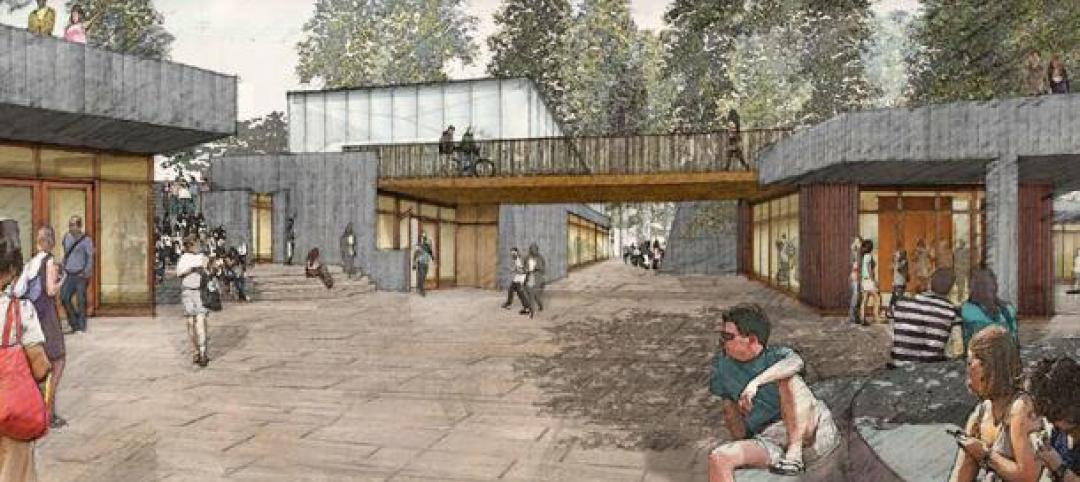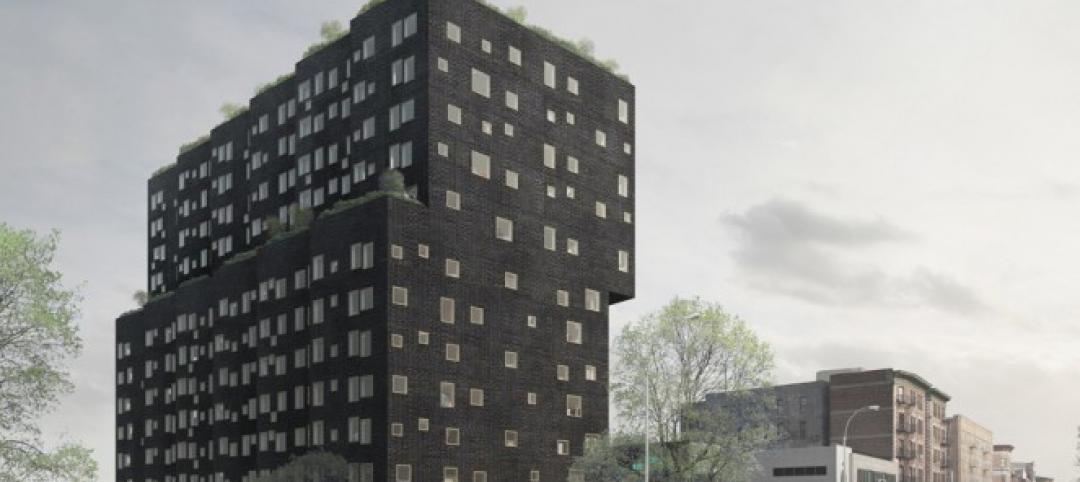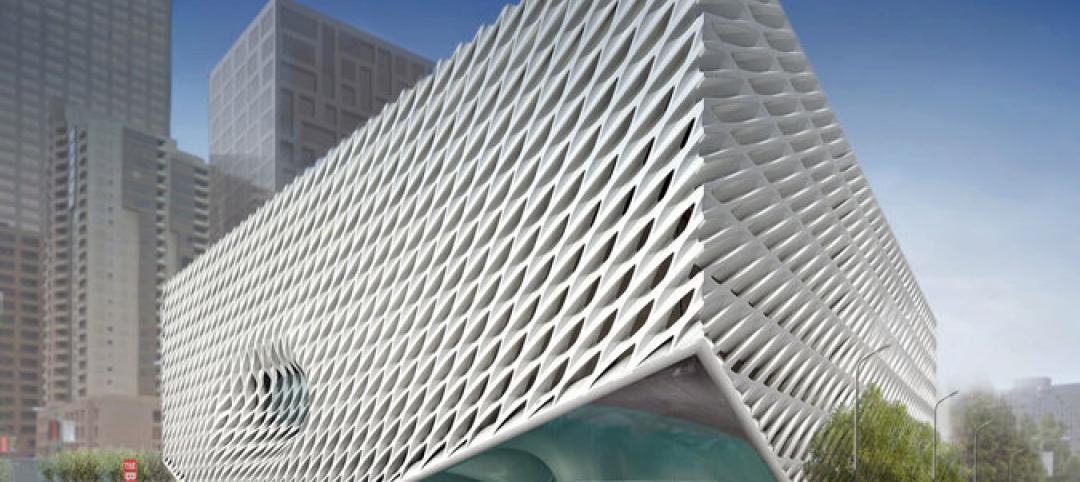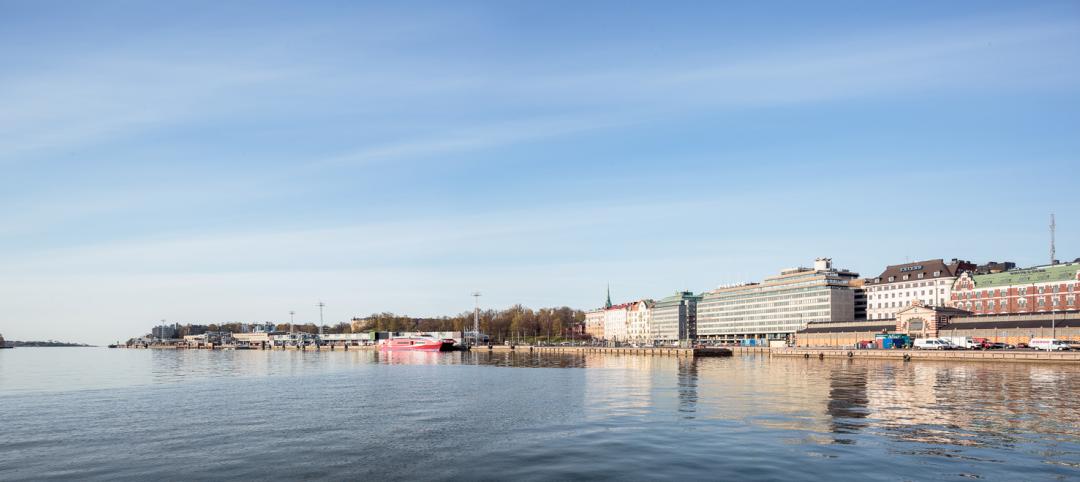The Philadelphia Art Commission has weighed in somewhat unfavorably on Robert A.M. Stern's design for the Museum of the American Revolution in Philadelphia.
According to The Inquirer, the commission didn't offically reject the $150 million proposal, but on Feb 5 it did communicate concerns about the building's design. Specifically, the commission asked Stern to eliminate a cupola, add eye-level windows on the ground floor, and rethink the building's composition.
The museum, supported by H.F. "Gerry" Lenfest, the Oneida Indian Nation, and the state of Pennsylvania, will exist in a space currently dominated by a red brick visitor center built for Philadelphia's Bicentennial in 1976. The commission has approved the demolition of the visitor center so that museum construction can start in the summer of 2014.
"This building really has a big-box-store mentality with a little bit of ornament attached," David B. Brownlee, a Penn art historian and vice chair of the Design Advocacy Group, told Inga Saffron of The Inquirer. Read the full report from The Inquirer.
Here is the firm's essay on the current design scheme for the museum (via www.ramsa.com):
The Museum of the American Revolution, anchoring the eastern end of Independence National Historical Park, is designed to introduce visitors to the American Revolution with its extraordinary collection of historical artifacts and contemporary interpretations demonstrating the continued worldwide importance of the Revolution.
Set amidst buildings of national and architectural significance—facing the First Bank of the United States (Samuel Blodgett, 1795), near William Strickland's Merchant's Exchange (1834) and the U.S. Custom House (Ritter & Shay, 1934)—the Museum will carry forward the restrained Classicism that heralded the birth of the Republic.
The Museum will address the corner of Chestnut and Third Streets with a broad plaza and an inviting entry facade that offers a glimpse at the treasures within through a two-story glazed portico. The museum shop and a café that opens to the sidewalk will enliven the Third Street facade; above, the wall that conceals the galleries will be articulated with brick quoining and recessed blind brick arches, accented with stone at the spring points and keystones and housing stone apsidal niches.
Our design organizes the Museum around a skylit central interior court. The ground floor will accommodate a multi-use theater and a changing exhibition gallery. Within the court a grand elliptical stair will take visitors up to 18,000 square feet of galleries and a theater dedicated to the exhibition of George Washington's marquee tent, one of the Museum's most dramatic holdings.
The Museum's third floor will offer rooms for conferences, symposia, and social events; two broad terraces overlooking the First Bank will command views to Independence Hall and the modern-day Philadelphia skyline.
The Museum will provide state-of-the-art storage and conservation spaces, following best practices for sustainable museum design to target LEED Silver certification.
The Museum will announce itself with a distinctive tower set directly above the lobby: atop a rectangular lantern with scalloped corners, sized to house a full-scale replica of the Liberty bell, will rise a cylindrical cupola with a bell-shaped roof that celebrates in a contemporary way the importance of our nation's founding.
Related Stories
| Jun 23, 2014
Gehry's 'glass sail' cultural center for Foundation Louis Vuitton set to open in October
Comissioned by Bernard Arnault, American legendary architect Frank Gehry's newest structure in Paris for Foundation Louis Vuitton will house eleven galleries and an auditorium for performing arts.
| Jun 18, 2014
Arup uses 3D printing to fabricate one-of-a-kind structural steel components
The firm's research shows that 3D printing has the potential to reduce costs, cut waste, and slash the carbon footprint of the construction sector.
| Jun 16, 2014
6 U.S. cities at the forefront of innovation districts
A new Brookings Institution study records the emergence of “competitive places that are also cool spaces.”
| Jun 13, 2014
First look: BIG's spiraling museum for watchmaker Audemars Piguet
The glass-and-steel pavilion's spiral structure acts as a storytelling device for the company's history.
| Jun 12, 2014
Tod Williams Billie Tsien Architects' design selected for new UCSC facility
The planned site is a natural landscape among redwood trees with views over Monterey Bay, a site that the architects have called “one of the most beautiful they have ever worked on.”
| Jun 12, 2014
Austrian university develops 'inflatable' concrete dome method
Constructing a concrete dome is a costly process, but this may change soon. A team from the Vienna University of Technology has developed a method that allows concrete domes to form with the use of air and steel cables instead of expensive, timber supporting structures.
| Jun 11, 2014
David Adjaye’s housing project in Sugar Hill nears completion
A new development in New York's historic Sugar Hill district nears completion, designed to be an icon for the neighborhood's rich history.
| Jun 9, 2014
Green Building Initiative launches Green Globes for Sustainable Interiors program
The new program focuses exclusively on the sustainable design and construction of interior spaces in nonresidential buildings and can be pursued by both building owners and individual lessees of commercial spaces.
| Jun 9, 2014
Eli Broad museum files $19.8 million lawsuit over delays
The museum, meant to hold Eli and Edythe Borad's collection of contemporary art, is suing the German company Seele for what the museum describes as delays in the creation of building blocks for its façade.
| Jun 4, 2014
Want to design a Guggenheim? Foundation launches open competition for proposed Helsinki museum
This is the first time the Guggenheim Foundation has sought a design through an open competition. Anonymous submissions for stage one of the competition are due September 10, 2014.


